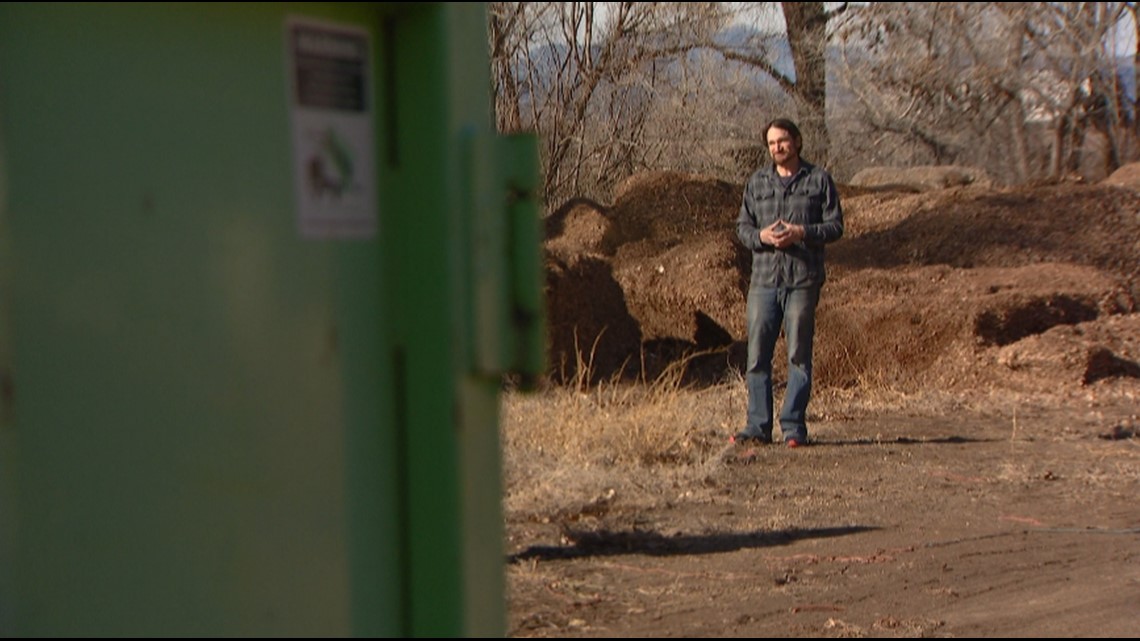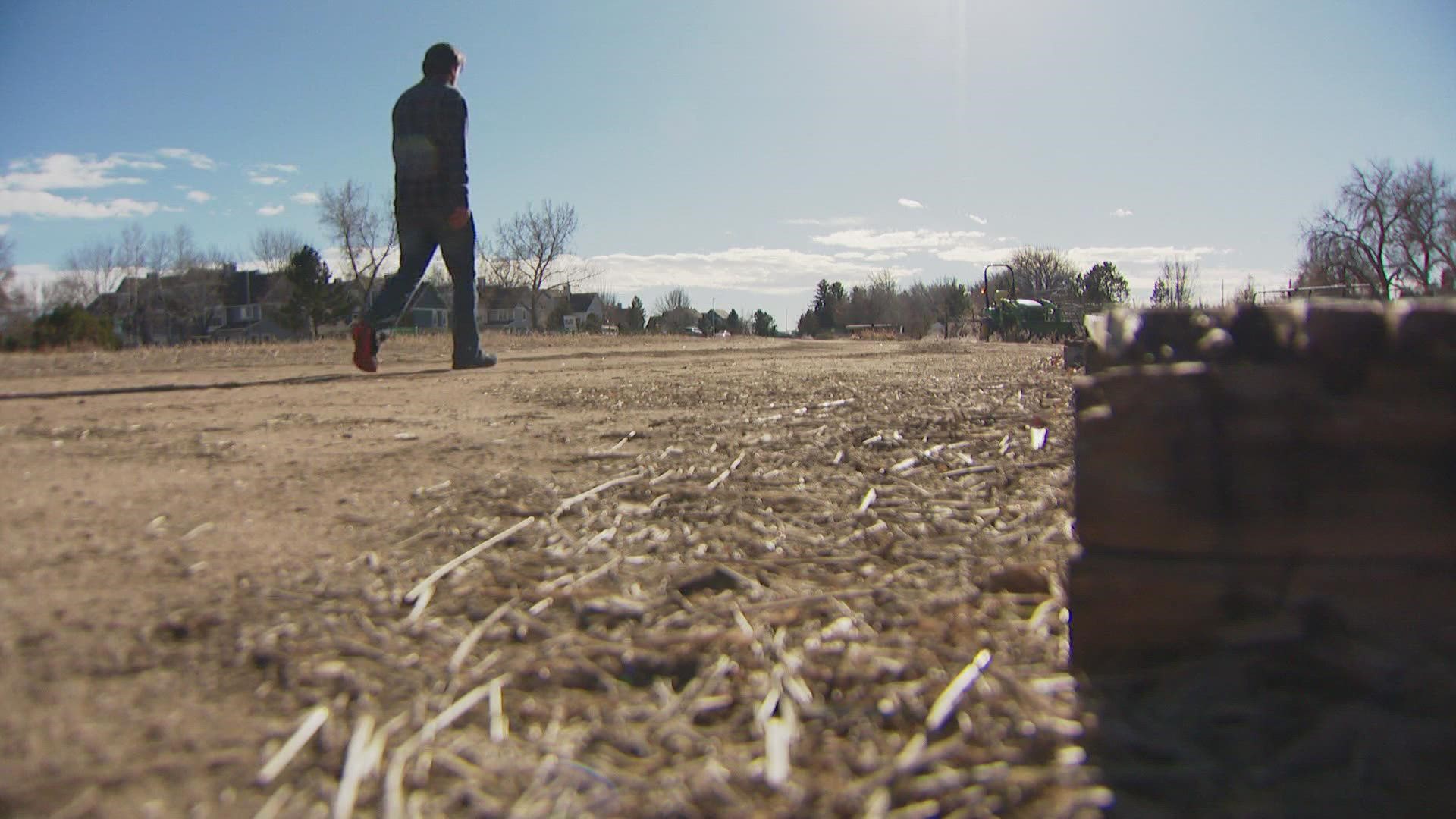LONGMONT, Colo. — There's not a single pile of dirt Mark Guttridge doesn't appreciate.
"I love soil," he said with a laugh.
He said healthy topsoil has always been the foundation of Ollin Farms in Longmont.
"We wanted to grow the healthiest food possible for the community," said Guttridge, who owns the farm with his wife Kena.
But each year, topsoil is disappearing across the globe.
"There's some scientist who have modeled we only have 60 or 70 harvest(s) before we're out of topsoil," said Guttridge.
That's why he's a regenerative farmer. It means he "grows" new topsoil and sequesters carbon from being released into the atmosphere.
"What regenerative farmers are really trying to do is just mimic those natural systems and find ways that we can restore the balance on the Earth," he said.
With a $90,000 climate innovation grant from Boulder County, Mark is researching how to most quickly build new topsoil.
It all starts with composting.
"We diverted close to 50 tons of shredded leaves out of the dump," said Guttridge. "We mix this half and half with the chicken compost and the sheep compost and layer it in... and blow air through it and within a couple months, it’s already back into soil that we can use back at the farm."


"We work with mushroom farms to get their spent mycelium bags after they're done harvesting. We're breaking those up and mixing it with the wood chips and sure enough we’ve been able to see how we can decompose like almost six inches to a foot of new soil within one year given the right conditions," he said.
He said the fungi breaks down the wood waste from dead trees and burn areas.
"This is a great carbon source," he said. "We don’t want that going to the landfill where it’s just going to give off more carbon methane and contribute to more problems there, so we divert it to the farm."
Guttridge said in the last five years, climate change has been really impacting their farm. He said regenerative farming and healthy soil will help them combat extreme heat patterns and drought they've seen recently.
"We’re looking at how can we kind of storm-proof and climate-proof the farm and it really is all about building a nice big, resilient sponge soil that when there’s a little bit of water it can hold onto it and act like a sponge and when there’s too much water it’s not going off and flooding, it’s going through the soil and recharging the aquifer," he said.
But, Guttridge said the best way to get fertility back into the fields is with animals.
"The best composter is probably the ones that eat the most," he said.
The chickens on the farm are Mark's most valuable workers, eating all their kitchen scraps and other high carbon materials
"This is where the nitrogen and all the minerals and all the nutrients is coming from," said Guttridge.
The work they're doing here is vital to keeping the dirt that Mark loves so much healthy.
"It takes a community of support to really push a fundamental change in agriculture and how we feed ourselves and how we commune with the land," he said.
Boulder County awarded $500,000 in total for their first ever Climate Innovation grants. Besides Ollin Farms, four other projects received grants that will restore local ecosystems and remove carbon dioxide from the atmosphere.
"This is where the nitrogen and all the minerals and all the nutrients is coming from," said Guttridge.
> Below: Aerial footage of Ollin Farms in Longmont
SUGGESTED VIDEOS: Latest from 9NEWS

